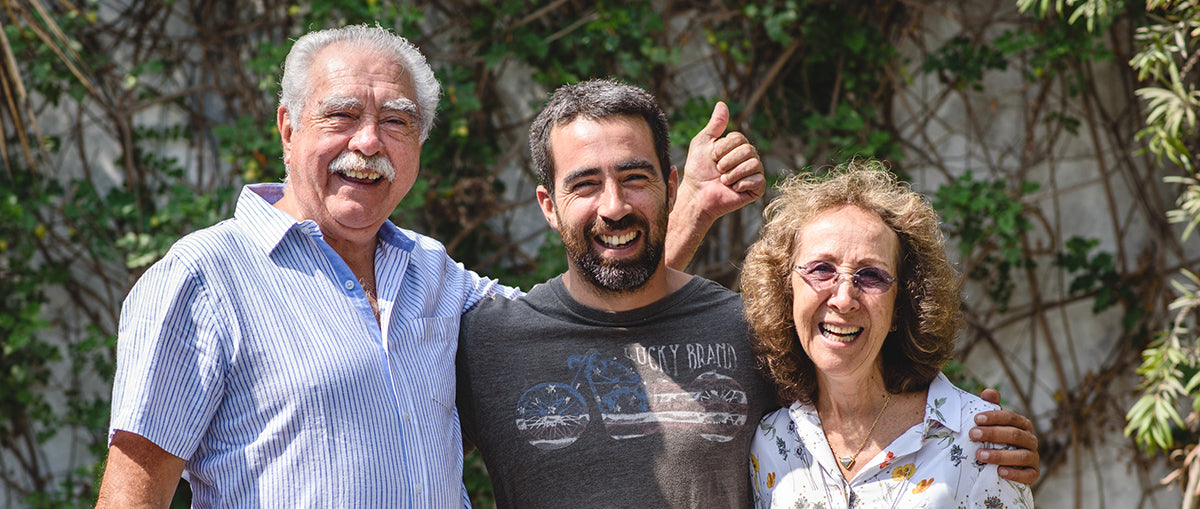Organic Tanguis Cotton
The Joobles organic stuffed animals originate in this beautiful place - in the Andean highlands close to the Pacific coast, near Chiclayo, Peru.
A family farm
The farm above is one of two owned by husband and wife team, Javier and Elsa, along with their son Javier Jr who oversees the day-to-day operations of the farms. As smart business people, their other farm is located over 500 miles away in Pisco, which is on the opposite planting/harvesting calendar. So they have a harvest twice a year instead of once and hedge their bets against bad weather in one region or the other.

Why Tanguis?
Tanguis, like its close cousin Pima, is an ELS (extra long staple) cotton. It's significantly softer, stronger, and longer-lasting that other cottons. It beautifully resists pilling, shrinking, and disintegrating over time. So it's perfect to start with Tanguis cotton for plush dolls that we hope will be with you for years and years of pure joy.
Why organic?
If you love organic food, but hadn't given much thought to cotton, consider this: cotton occupies only 3% of the world's farmland, but it consumes an eye-popping 25% of all pesticides. Setting aside the fact that we probably don't want pesticides lurking in toys, cotton pesticides in particular are even stronger than many food crop pesticides and can cause grave damage to farmland and adjacent eco-systems. Cotton pesticide often sterilizes the soil, which encourages deforestation in the search for new farmland. It also leaches into ground water, rivers, and lakes, and poses a danger to farm workers.


Which brings us to Peru
Cotton is to Peru as ice is to Antarctica. Cotton fabrics and garments have been found in Incan and even pre-Incan ruins. Today, Peru is widely regarded as the best place on earth to grow cotton. And one of the very few places perfect for growing Tanguis cotton.
All of our cotton is grown without the use of pesticides, much like the Incas did. Our farmers use time-honored techniques like crop rotation for soil health (they grow quinoa in the off season), natural irrigation, and "intercropping" (see Fun Fact below).

Fun Fact: Corn is a natural pesticide for organic cotton. Our farmers plant one stalk of corn at the end of each row of cotton - kind of like an end aisle display. The corn attracts precisely the right insects that prevent cotton pests. We are so impressed with the thoughtful planning and hard work that goes into trying to do the right thing!

A labor of love
Tanguis cotton requires that farmers weed and harvest completely by hand because machines partially destroy the extra long fibers. Add in the unrelenting sun during the harvest season, and it's quite a hard day's work. We are so grateful for the partners who provide us with this incredibly soft and safe building block for our artisans to knit wonderful quality stuffed animals.

